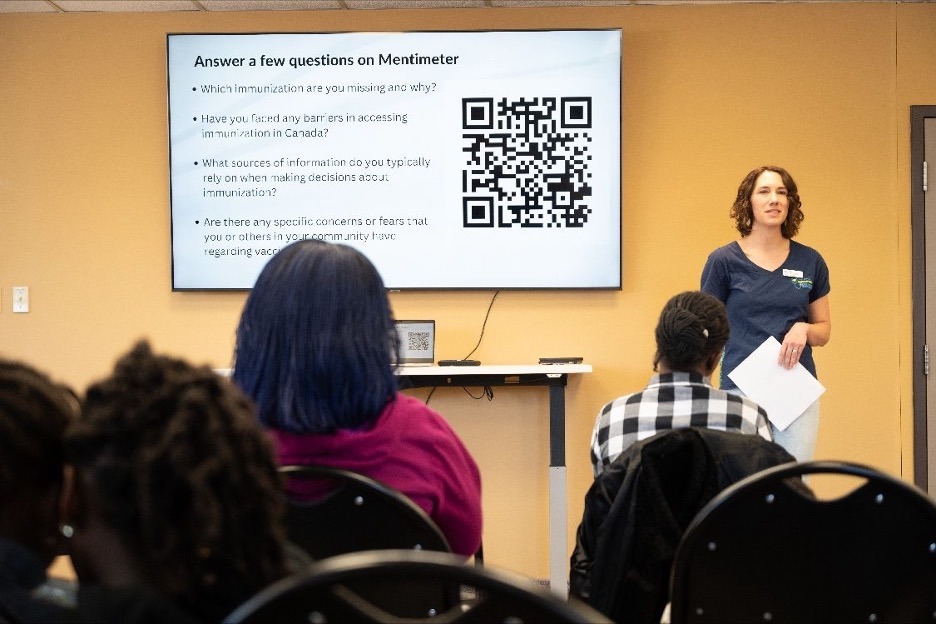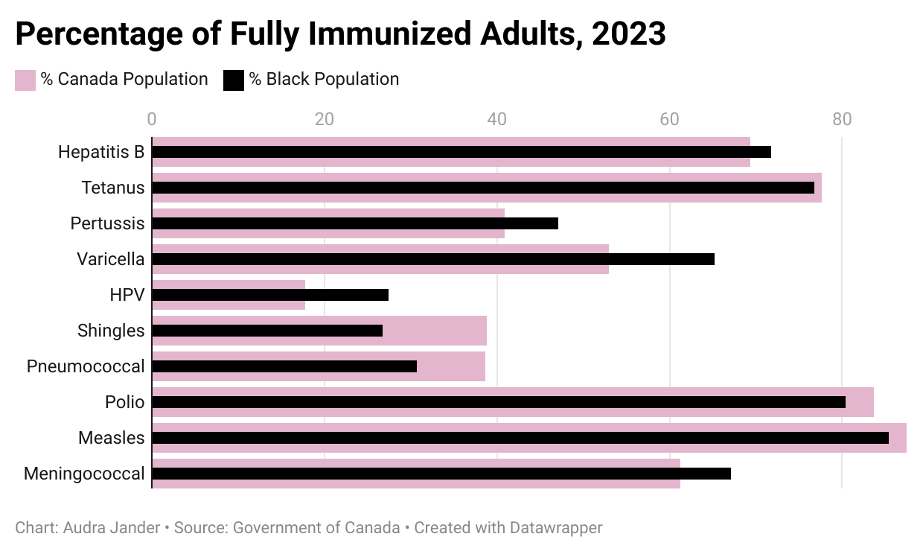‘Meeting the community where they are:’ Black immunization event bridges healthcare gaps in Waterloo Region

The Region of Waterloo held its second immunization awareness drive this past weekend, connecting over 20 families with local health and immunization resources.
Organized by MedInclude, a local med-tech startup, it partnered with multiple community organizations, including Waterloo Region public health, Kitchener Public Library and Federation of Black Canadians.
According to Seun Adetunji, MedInclude founder and University of Waterloo graduate, the event centered the region’s Black community to bring awareness to the importance of routine vaccinations and local public health services.
“The purpose of focusing on that demographic is to help bridge the gap and access to information that my community experiences,” she said.
Every two years, the Adult National Immunization Coverage Survey (aNICS) publishes data on the rate of adult immunization coverage in Canada. In 2023, it reported that Black Canadians are less likely to be fully vaccinated against many common infectious diseases compared to the general population.
The aNICS report found that of Canadians who did not have their full immunization doses, the main reasons were costs of immunization, inability to book appointments, and lack of knowledge about where to get vaccinated.

Adetunji attributes this to a gap in public health services and the Black community, especially newcomers.
“It's very different when you were birthed in a system and grew up and totally understand how to navigate the system,” she said.
“For newcomers, it can be a bit different or difficult to find that information that's necessary to help navigate the system.”
According to a 2023 Government of Canada study, only 79.5 per cent of Black Canadians have access to a regular healthcare provider, compared to 85.5 per cent of the general population.
In Adetunji’s view, accessible healthcare also involves community-based practices, especially in combating mistrust and unfamiliarity with the healthcare system.
"Once that information gap is addressed, Black families, new immigrants, and newcomers are usually very eager to get immunized," she said.
“[It’s] meeting the community where they are.”
Post a comment